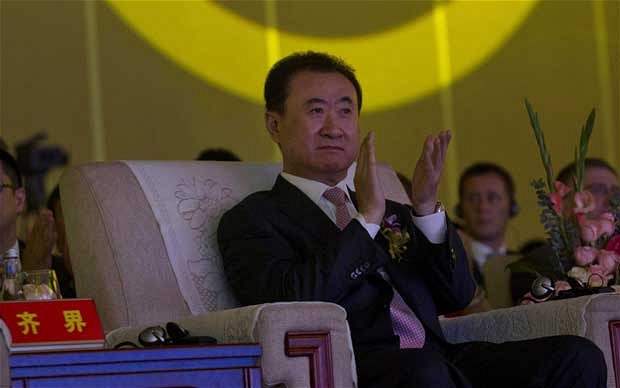The Global Times looks at a new report from Hurun and GroupM Knowledge which shows that, amid an extended economic slowdown, 2012 saw a five-year low in the growth of multi-millionaires and billionaires in China:
The number of multi-millionaires and billionaires in China rose 3 percent and 2 percent year-on-year respectively in 2012, the slowest growth in five years, according to a report released on Wednesday.
By the end of 2012, there were 1.05 million individuals with a personal wealth reaching 10 million yuan ($1.6 million) and 64,500 with a personal wealth of more than 100 million yuan on the Chinese mainland, an annual increase of 30,000 and 1,000, read the report jointly issued by the Shanghai-based Hurun Research Institute and GroupM China.
Both research firms attributed the slowdown to the bearish domestic stock market. [Source]
The South China Morning Post highlights more trends in Chinese wealth, as found in the report:
Guangdong in southern China is now the province with the second highest number of super- wealthy individuals, while Tianjin saw the fastest increase in millionaire numbers of any mainland city last year.
One out of every 1,300 people in China is now a “millionaire”, with personal wealth of over Renminbi 10 million (HK$12.6 million) and one out of every 20,000 is in the super rich bracket, with personal riches of RMB 100m (HK$126 million).
[…]The Hurun millionaires’ happiness index has recorded happiness of 7.8 out of 10 for the super-rich. The index is based on family, work, health and personal life, with respondents asked to rate their happiness from 0 to 10. Health matters most to them, but a quarter say they are unhappy with their health. This year 73% of China’s millionaires think they are happier than the previous generation; the happiness they get from their family is greater than that from their jobs. The female millionaires’ happiness index has reached eight, slightly higher than men and the under 30s score lower than older rich people.
The index finds 30% of millionaires are dissatisfied with their work-life balance, and some 20% of rich women have trouble sleeping. [Source]
As the rate of those becoming members of China’s super-rich hits a five-year low, a new billionaire takes the title of China’s richest man. After coming in second to Wahaha Group founder and chairman Zong Qinghou on the 2012 Hurun Rich List, the Bloomberg Billionaires Index shows that Dalian Wanda Group chairman Wang Jianlin is now the richest person in China:
Wang Jianlin, owner of China’s biggest commercial land developer, is the nation’s wealthiest person, based on regulatory filings that show his non-real estate businesses are more valuable than previously calculated.
The chairman of closely held conglomerate Dalian Wanda Group, which became the world’s largest movie theater chain after acquiring AMC Entertainment Holdings Inc. last year for $2.6 billion, has a net worth of $14.2 billion, according to the Bloomberg Billionaires Index. He is $3.2 billion richer than Zong Qinghou, founder of Hangzhou Wahaha Group, China’s No. 3 beverage maker. Zong is the country’s second-wealthiest person.
[…]The 58-year-old billionaire, who’s known to sing Tibetan and Mongolian folk songs at Wanda annual meetings, is the oldest of five brothers born to a military family in western China’s Sichuan province, near the border with Tibet. His father fought for Mao Zedong’s Red Army during the Long March campaign in the 1930s, and later against the Japanese in World War II. [Source]
Also see a profile of Wang from Quartz, noting Wanda’s recent acquisition of assets in London, including the purchase of a 92 percent share of Sunseeker—the company that produces yachts featured in James Bond movies. The Telegraph’s Malcolm Moore notes that the acquisitions are in line with Beijing’s mandate that Chinese brands should go global. In 2012, Wanda purchased AMC Theatres, making Wang the American companies’ chairman and Wanda the world’s largest cinema chain.
Early this year, China released an official Gini coefficient—a measure of income inequality—for the first time since 2000. While controversy over the index reported by the National Statistical Bureau exists, even the officially sanctioned number is considered to indicate “potentially destabilizing inequality.”







